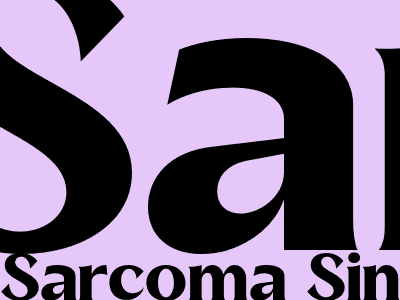Sarcoma Sinovial: A Rare and Aggressive Cancer of the Soft Tissue
Understanding Sarcoma Sinovial
Sarcoma synovial, also known as synovial sarcoma, is a rare and aggressive cancer that develops in the cells of the synovium, the lining of the joints and tendons. It is the fourth most common type of soft tissue sarcoma, accounting for approximately 5% to 10% of all cases. Sarcoma synovial can occur in any part of the body, but it is most commonly found in the extremities, especially the knees and ankles.
Causes and Risk Factors
The exact cause of sarcoma synovial is unknown, but it is believed to be caused by a combination of genetic mutations and environmental factors. Some risk factors that may increase the chance of developing sarcoma synovial include:
- Radiation exposure
- Exposure to certain chemicals, such as asbestos and vinyl chloride
- Family history of sarcoma
- Certain genetic conditions, such as Li-Fraumeni syndrome
Symptoms of Sarcoma Sinovial
The symptoms of sarcoma synovial can vary depending on the location and size of the tumor. Some common symptoms include:
- A painless lump or swelling in the affected joint or tendon
- Pain and stiffness in the affected joint
- Decreased range of motion
- Numbness or tingling in the affected limb
- Fever and chills
- Weight loss
Diagnosis and Treatment of Sarcoma Sinovial
Sarcoma synovial is diagnosed through a combination of physical examination, imaging tests, and biopsy. Treatment options for sarcoma synovial depend on the stage and location of the tumor. Surgery is the primary treatment for localized tumors, while chemotherapy and radiation therapy may be used to treat more advanced tumors.
Prognosis for Sarcoma Sinovial
The prognosis for sarcoma synovial depends on the stage of the tumor at diagnosis. The 5-year survival rate for patients with localized tumors is approximately 70%, while the 5-year survival rate for patients with metastatic tumors is approximately 30%. However, with advances in treatment, the prognosis for sarcoma synovial has improved significantly in recent years.
Conclusion
Sarcoma synovial is a rare and aggressive cancer that can occur in any part of the body. While the exact cause of sarcoma synovial is unknown, it is believed to be caused by a combination of genetic mutations and environmental factors. The symptoms of sarcoma synovial can vary depending on the location and size of the tumor. Treatment options for sarcoma synovial depend on the stage and location of the tumor. The prognosis for sarcoma synovial depends on the stage of the tumor at diagnosis. With advances in treatment, the prognosis for sarcoma synovial has improved significantly in recent years.

Komentar